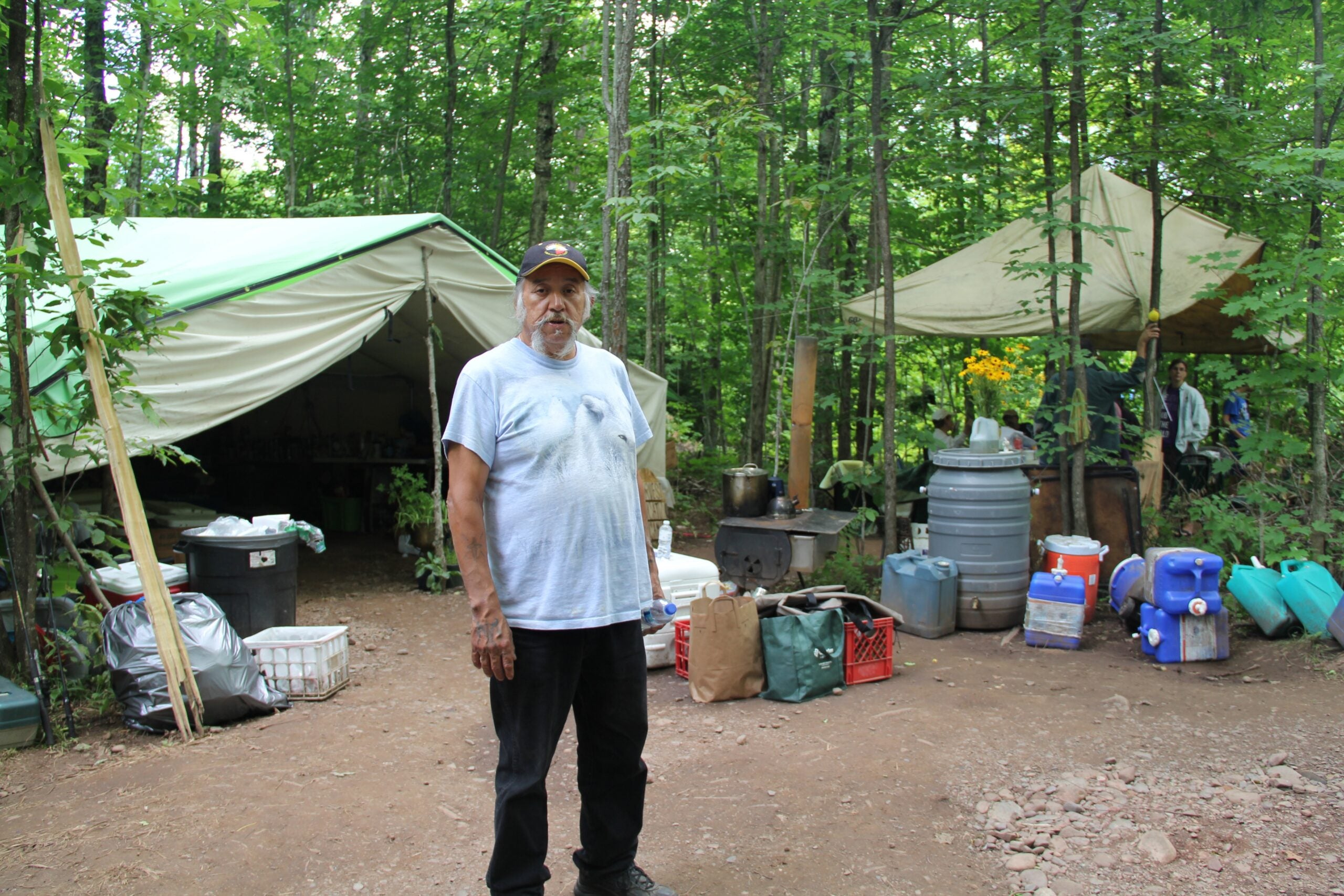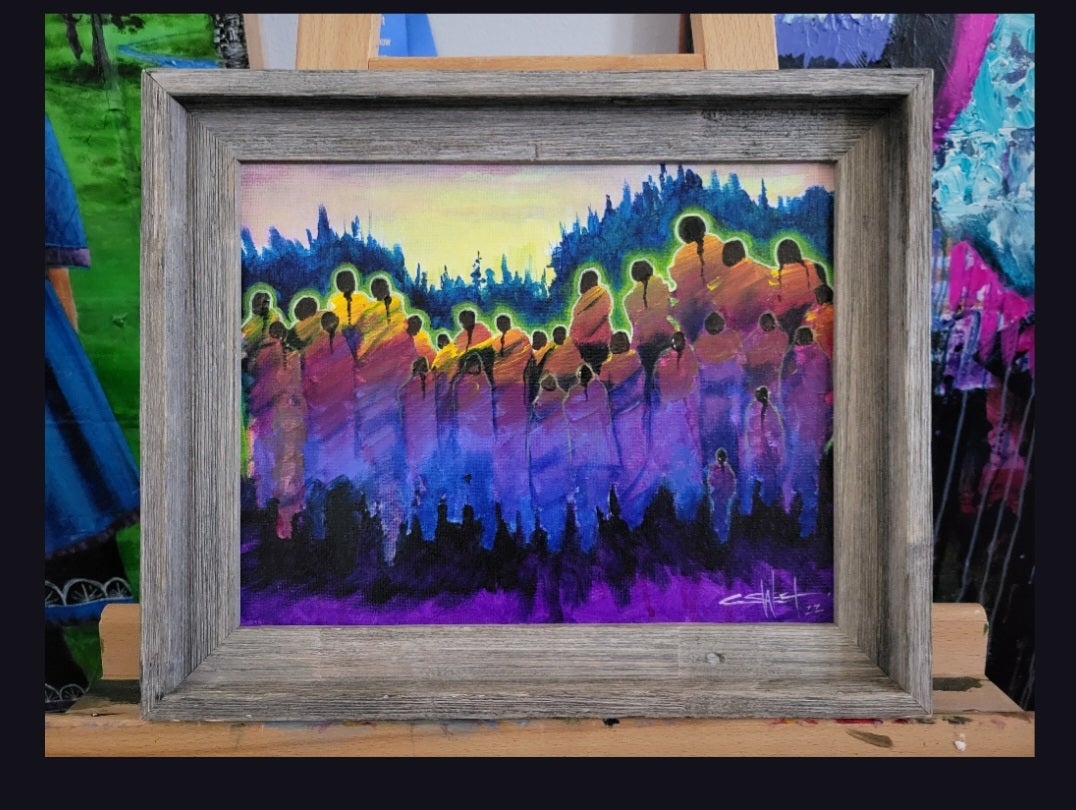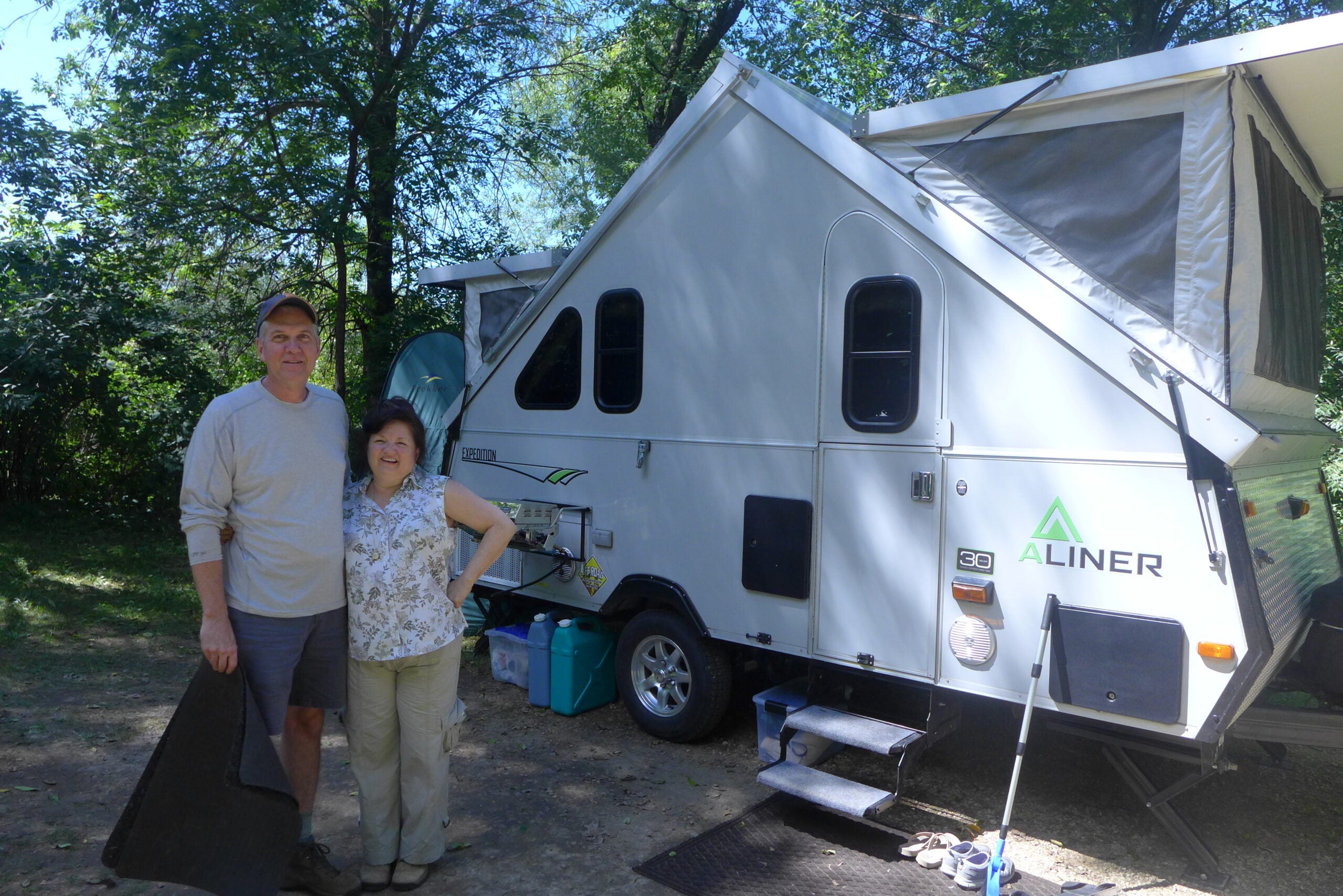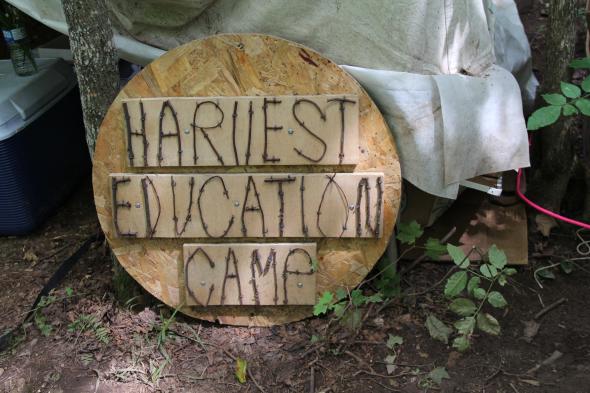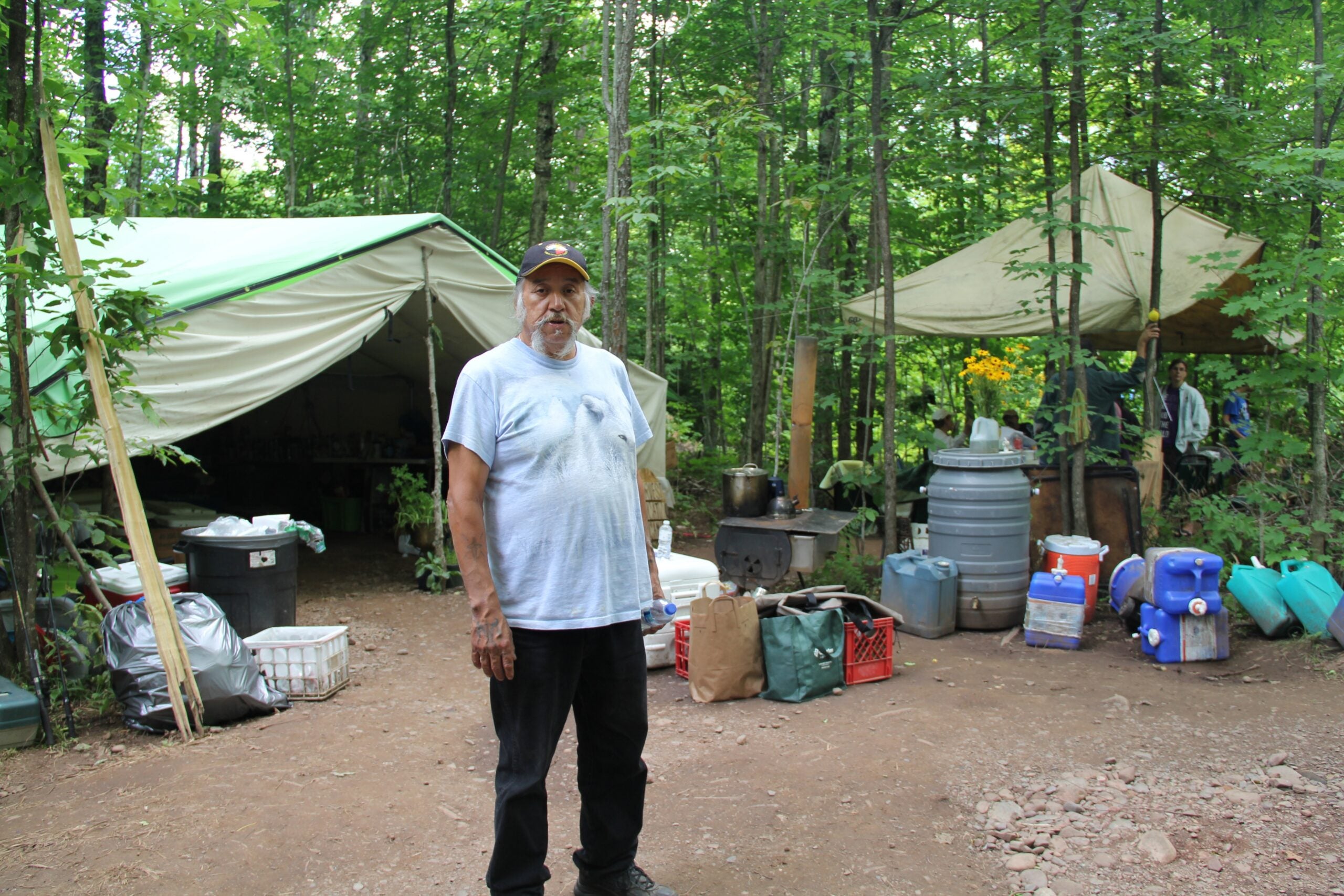The Harvest Camp in the Penokee Hills is in legal limbo as Iron County and the Lac Courte Oreilles tribe work to figure out its future.
Meanwhile, the camp continues drawing visitors from around the state, including reporter Tegan Wendland with the Wisconsin Center for Investigative Journalism, who went there this last weekend and filed this report. Below is an audio slideshow with the feature story she recorded for WPR News and photos she took at the camp, as well as the transcript of her story.
Camp leaders say it just depends on the day – sometimes they have lots of visitors and activities, other days the place feels like a family home that just happens to be in the woods.
Stay informed on the latest news
Sign up for WPR’s email newsletter.
Mel Gasper is a Lac Courte Oreilles elder and head of what he says is more than just a camp.
Gasper: “It’s an educational camp, it’s a learning camp, it’s also a healing camp for a lot of people that come out here. They get a sense of being back-to-nature and the easement of their mind and soul.”
Those people include children, who run around the camp playing with the pet rabbit, sliding down a pile of stones, driving toy trucks through the wood pile and catching bugs and frogs.
Savannah Wilbur: “Me and my nephew like to look for frogs… Yes, we got him! He’s so little! Leighton say something! Say ‘cool’”
Leighton Wilbur: “Cool.”
More than a thousand visitors have signed their names in the camp guestbook. They buy handcrafted items like birch bark baskets, walking sticks and traditional recipes. The money benefits the camp. Crystal Feral of Madison is looking to buy an ironwood walking stick made by camp member Clifton Gann.
Feral: “Oh my goodness, those are awesome.”
Gann: “This one’s $25, this one would be $30.”
Feral: “Yeah I like the shorter one. Tell me how you do these diamond. Is this a natural part of the wood? “
Gann: “Yeah, that’s natural – those are knots.”
There’s a tarp hanging over a fire circle in the center of the camp where Gasper says people gather to talk and cook food throughout the day and night.
Gasper: “We sit around here, we do a lot discussion in this area here. It’s the significance of the native people here to sit around and discuss things. We do things in the circle of life, and to sit around the fire is the significance of that.”
Camp members lay out maps of the Penokees and tell visitors about the proposed mine as well as the natural beauty of the place.
Wildlife biologist and mine opponent Gregg Jennings gives tours throughout the day to the site where Gogebic Taconite (GTAC) has done some exploratory drilling, about a mile or so through the woods.
Jennings: “We’re at one of the drill sites. Drill site number eight. Right now we’re looking at what they left behind, which is a pipe that was drilled at an angle. They painted it red, I suppose, so that people could see it…”
Nina Rose of Madison says she’s visiting the camp because she wants to learn about the proposed mine, which she sees as a threat.
Rose: “There is no way to compare the profit. There is no exchange for human life. That’s the number one endangered resource I think.”
They also give tours of Tyler Forks, a river which flows through the Penokee range. At the end of a gravel road, visitors walk up through the forest and along the gorges and rapids, sometimes stopping to swim or listen to the river.
But it’s not all peace and quiet. The camp recently received a generator as a donation which they use to power lights and charge cell phones. There are porta-potties and camp stoves, they were even given a four-wheeler recently.
Gasper: “Everything we have here has been donated by all of the people who want to show their support and everything. We have everything here. Coolers, water, sleeping bags, food, canned foods, meat products, we have a four burner gas stove over there we haven’t even used yet.”
They’ve planted several gardens with tomatoes, peppers, lettuce and squash. Gasper says they’re not planning on going anywhere anytime soon.
Gasper: “We’re going to stay here for the duration of whatever happens here. That’s our main goal.”
Wisconsin Public Radio, © Copyright 2025, Board of Regents of the University of Wisconsin System and Wisconsin Educational Communications Board.
